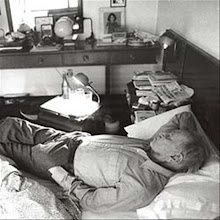Every philosopher runs away when he or she hears someone say, “Let’s discuss this.” Discussions are fine for roundtable talks, but philosophy throws its numbered dice on another table. The best one can say about discussions is that they take things no farther, since the participants never talk about the same thing. Of what concern is it to philosophy that someone has such a view, and thinks this or that, if the problems at stake are not stated? And when they are stated, it is no longer a matter of discussing but rather one of creating concepts for the undiscussible problem posed. Communication always comes too early or too late, and when it comes to creating, conversation is always superfluous. Sometimes philosophy is turned into the idea of a perpetual discussion, as “communicative rationality,” or as “universal democratic conversation.” Nothing is less exact, and when philosophers criticize each other it is on the basis of problems and on a plane that is different from theirs and that melt down the old concepts in the way a cannon can be melted down to make new weapons. It never takes place on the same plane. To criticize is only to establish that a concept vanishes when it is thrust into a new milieu, losing some of its components, or acquiring others that transform it. But those who criticize without creating, those who are content to defend the vanished concept without being able to give it the forces it needs to return to life, are the plague of philosophy. All these debaters and communicators are inspired by ressentiment. They speak only of themselves when they set empty generalizations against one another. Philosophy has a horror of discussions. It always has something else to do. Debate is unbearable to it, but not because it is too sure of itself. On the contrary, it is its uncertainties that take it down other, more solitary paths.
Gilles Deleuze and Félix Guattari


![[...]](https://blogger.googleusercontent.com/img/b/R29vZ2xl/AVvXsEjeNC2Kyxd34r2LuofHe9-vdXHeHwG3_2NhVmIOTlK2moU0Q4R7taMlS8iMmQgEl1-NdaRsPrLdREzfQZYKfUgjslwLZUZe67dAfFBREu-YRx6WGX-vAUt5eJT4_-lFwT4dGzGCQQ/s220/11798115_858304687558226_1857652538_n.jpg)














































